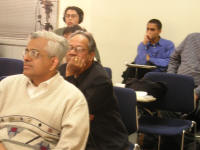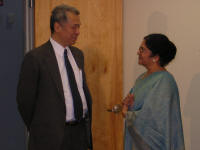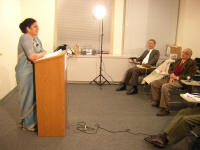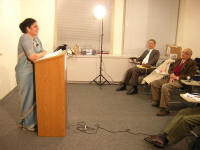The earliest reference to the influence of Sanskrit literature and Hinduism can be traced back to Greece. Greece was lured by the Indian wisdom with the advent of Alexander in the western region of India in the fourth century BC.
The earliest reference to the influence of Sanskrit literature and Hinduism can be traced back to Greece. Greece was lured by the Indian wisdom with the advent of Alexander in the western region of India in the fourth century BC.
Modern Scholars like Prof. Jean Filliozat of France, England’s Prof. E.J.Urwick in his book, “The message of Plato”and India’s Prof. S. Radhakrishnan in his book “Eastern Religions and Western Thought”, have found the influence of the Upanishads on Plato. Victor Hugo says Plato “has the brahmin in him”.
Till the 18th. Century Europe had lived a very Christian idealism and for the first time it opened its eyes to texts which were independent of the biblical tradition. The Zend Avesta was translated in 1771 and the Bhagvat Gita in 1784. For the first time Europe realized that her civilization was one amongst so many and as Raymond Schwab puts it: “India was the cradle of all humanity”

The late 18th. Century and the early 19th. Century saw a host of translations of Sanskrit literature. It is during this period that Indology as a discipline was born from the curiosity and concern for the rich Indian culture and civilization. The contours of these Indomaniacs varied from one to the other and the fruits of their works are complex and multifaceted. Philosophers, thinkers, and writers, all submerged themselves in the nectar of this literature, to nurture and nourish their own thoughts and philosophies.
In the beginning of the 19th. Century when European literature had had enough of the didactic and classical reasoning, when the tendency was towards a more open expression of thought, when the writers looked for anything that could be different and more profound, when preference was given to imagination, sensitivity and individuality, when Voltaire’s France and Herder’s Germany discovered a new world of ideas:” India and its literature”, a new literary movement was born.
In France, Victor Hugo, the precursor of the Romantic Movement, though initially rejected the influence of the Sanskrit literature, later succumbed to the profound wisdom of this philosophy. Born in 1802, lived a very Christian idealism in his early childhood under the influence of his mother. As an adolescent, he fought against the superiority and the influence of the Greek literature, and developed a voltarian taste for the Latin writers. Hugo, a close confidant of Louis Philippe, became an insurgent during the coup d’etat of 1851 in France. He was exiled during the years 1851 to 1870. But in the meantime, the unforeseen death of his daughter had transformed him into a profound thinker. He lived a very tumultuous life to die a hero’s death at the age of 83. Victor Hugo, undeniably a product of his times, dated historically, went through the multitude of influences which his epoch was open to and soon the romantic ideology of Hugo accepted the spiritual as well as the intellectual influences of the Indologists. The influence of the Hindu philosophy can be attested to by his writings and the subtle references mainly in his vast poetry.


